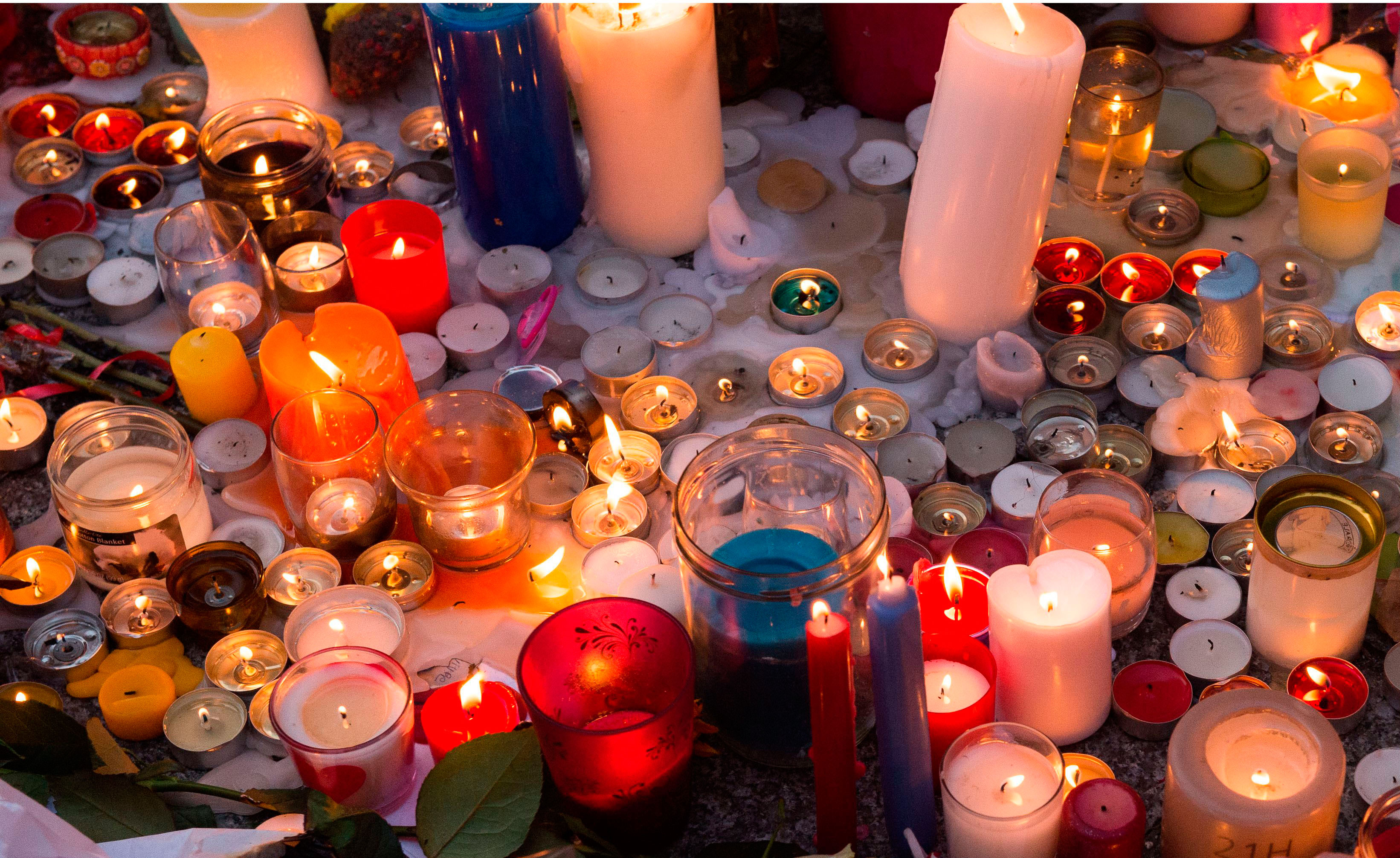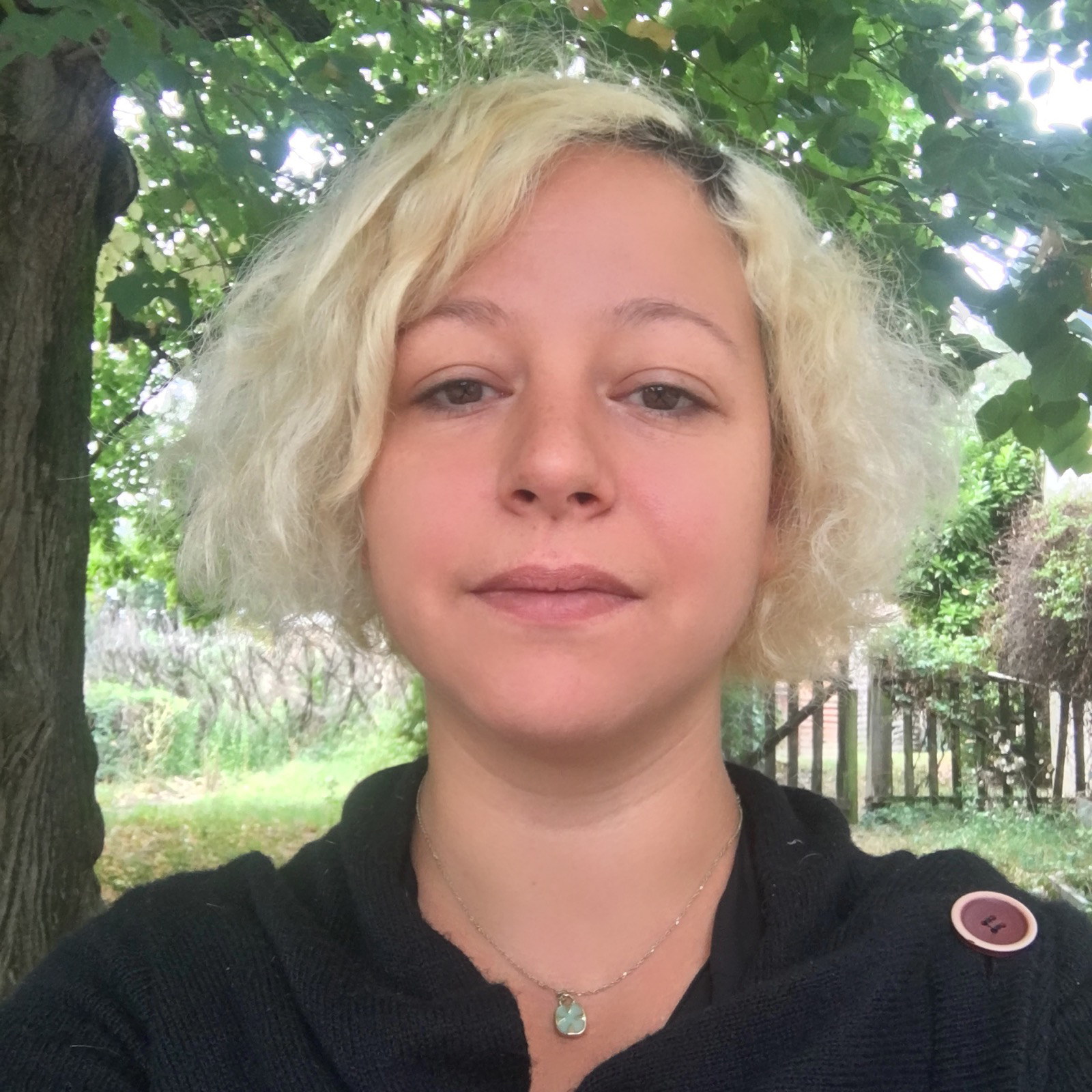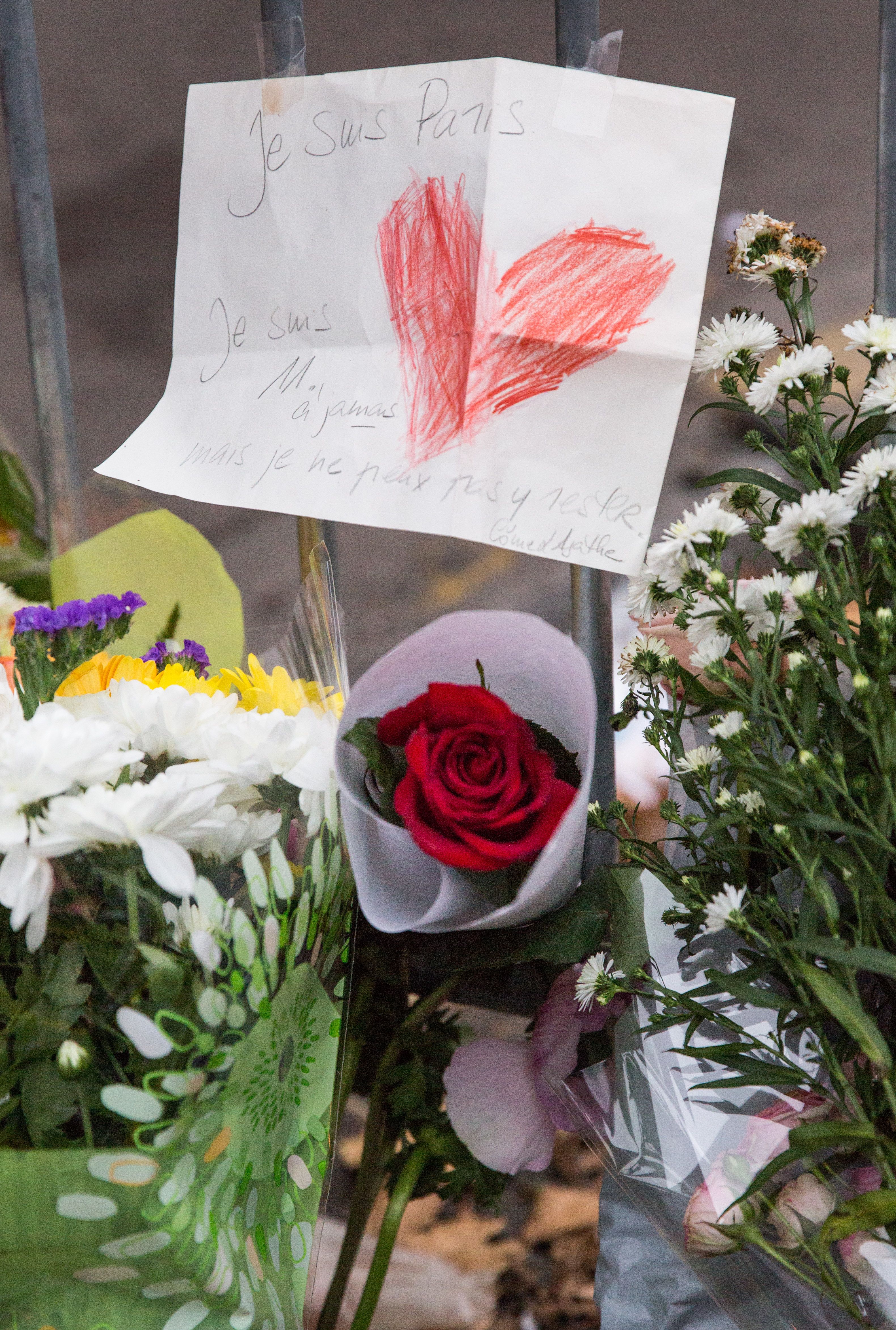The Paris attacks one year on: 'I felt guilty for surviving'
A year after she was involved in the Bataclan terror attack, Caroline Langlade speaks to Susan McClelland about learning to love life again...

Celebrity news, beauty, fashion advice, and fascinating features, delivered straight to your inbox!
You are now subscribed
Your newsletter sign-up was successful
A year after she was involved in the Bataclan terror attack, Caroline Langlade speaks to Susan McClelland about learning to love life again...
Words by Susan McClelland
When my boyfriend and I arrived at the Bataclan theatre on 13 November, 2015, for the Eagles of Death Metal concert, I was excited. But I was also exhausted. I’d been on my feet for five hours distributing food and blankets to freezing refugees on the streets.
Looking back, it was those refugees who saved my life, as not long after we entered the theatre, I told my boyfriend I was too tired to stand, so we moved upstairs to sit down. Minutes later, terrorists barged through the front doors and shot everyone who was standing by the stage. If we hadn’t have moved upstairs, I’d be dead.
Coming so close to death has had a significant impact on my life. Society is the same, but I’m not. Like others who were there that night, or have survived any major terrorist event, I’ve had to learn, like a child, how to live again in the shadow of what happened that day. A year on, I still jump when I hear loud noises, like the sudden rumble of a motorbike. I still wake up with a nagging remorse that I kept my life when so many mothers and fathers were killed that night; I wonder why I was not taken instead.

Caroline now
If you haven’t been through a terrorist atrocity first-hand, you might be afraid of crowded places during the day in case an attack happened to you. But we survivors are most afraid of the nights, when things go quiet and we replay each terrifying moment. When the terrorists began to shoot indiscriminately into the audience, the music stopped, people began screaming and a normal night was transformed into deadly chaos. Instinctively, I moved in the direction of the running, screaming people, towards what I hoped would be a way out. My boyfriend and I tumbled down the stairs into a room, no larger than 7 sq m.
Celebrity news, beauty, fashion advice, and fascinating features, delivered straight to your inbox!
There were 40 of us cramped, cowering, in that tiny room – our hearts thumping, sweating, all of us in a state of terror. My body trembled all over, disconnected like it didn’t belong to me, and yet my mind was rational, robotic even. I knew that if we pulled together as a group, and stayed calm, we would live.
I wasn’t alone. We all knew instinctively that to survive we needed to unite. We couldn’t let fear get the better of us. ‘We’re not going to make any decisions unless everyone else approves them and we’re agreed,’ I remember someone whispering and we all nodded. We decided to turn off the lights, lock the door, and open the iron-barred window to stop us suffocating.
It was me that was assigned to call the police. With trembling hands I dialled the number, forcing my mind to stay calm when I heard the busy tone. Then I called my mother and told her to ring back for me. Minutes later, a Paris police officer called my mobile. For 15 minutes he remained on the line, encouraging me to calm the others.
‘I know you are in there… you will not make it out tonight,’ came a voice from outside as I spoke. He told us he had a gun and we were all going to die. But we trembled silently, holding each other’s hands and breathing in unison – in through our noses, out through our mouths – in a steady rhythm to calm our collective panic.
For three-and-a-half hours we remained in this room, listening to the shooting, the screaming, the crying around us, followed by episodes of deafening silence, which was broken only by one of the terrorists banging on the locked door to remind us we were not alone. We clung to each other in total panic. We had no idea how many people had been killed, how many terrorists were out there, or what was going on. It resulted in moments of weakness as several of us reached breaking point. There were times when several people couldn’t take the pressure any more and tried to open the door to find loved ones outside. We fought with them in hushed whispers, begging them to think of the group. It was heartbreaking, but we had to remain a unit or we risked all of us being killed.

Tributes outside the Bataclan
Finally, when the police arrived and announced themselves, we didn’t believe it was them. A man in the room went to the window and asked them to prove their identities. We thought he’d be shot. As we unlocked the door and were led out, I saw what had happened. There was blood and dead bodies everywhere. It was like being trapped in an apocalyptic nightmare. Outside, we were greeted by two strangers – one Syrian and one Parisian – who reached out to my boyfriend and me, and held us like babies. I stared blankly at the pavement, my body numb. I wanted to feel human again.
In the days afterwards the fear and terror I’d suppressed in the room started to surface. I couldn’t read a book or watch a film. My parents and sister offered support, but I craved people who had shared my experience to help me understand my feelings. I had previously loved my job as a filmmaker, but I couldn’t contemplate returning to work; I couldn’t even face public transport. Darkness convinced me I was still in the room and I’d start to panic that the terrorists were coming to get me. I stopped socialising, craving instead the company of others who had been through the same experience. I wanted to talk to them so I’d no longer feel alone.
I started searching online for survivors from the room I’d been in and found support in a Facebook group, Life For Paris, set up by Maureen Roussel, who had also survived the Bataclan attack. Like me, some survivors were struggling to go back to normal life. Small tasks like getting up and having a shower were almost impossible. But strangely, I began to fall into a supportive role for others, advising them on where to go to get help with counselling and advice. It gave me a new purpose and soon I had a job with value, helping people move on with their lives, which helped me get on with my life too.
I’ve struggled with survivor’s guilt and face a battle every time there’s a terrorist attack. I feel overwhelming sadness for all those killed. But I’ve made friends with a man who lost his wife that night at the Bataclan, and he has convinced me that us survivors have to defy the terrorists by living courageously instead of allowing them to destroy us along with the dead.
I’ve undergone a huge transformation as a person since that night. Before, I was concerned about trivial things, like my apartment, my job, and the stuff I thought I needed to buy. I went to the cinema, I liked concerts and meals in nice restaurants. But now I know that when all is stripped back, life is only about love and solidarity. My three-and-a-half hours in that room with 40 strangers had a profound effect on how I see the world. We all had different political leanings, interests, lives and backgrounds, but when our outward trappings were lifted and we had to survive, we came together and did it.
I now feel lucky to live after the Bataclan terrorist attack. Today, Life For Paris represents 700 people from all around the world who have suffered violence… and we are growing. I have a renewed empathy for others now – a new sense of humanity. I experienced terrorism for one night but there are others, like the refugees who saved my life, who live with violence every day.
lifeforparis.org
The leading destination for fashion, beauty, shopping and finger-on-the-pulse views on the latest issues. Marie Claire's travel content helps you delight in discovering new destinations around the globe, offering a unique – and sometimes unchartered – travel experience. From new hotel openings to the destinations tipped to take over our travel calendars, this iconic name has it covered.